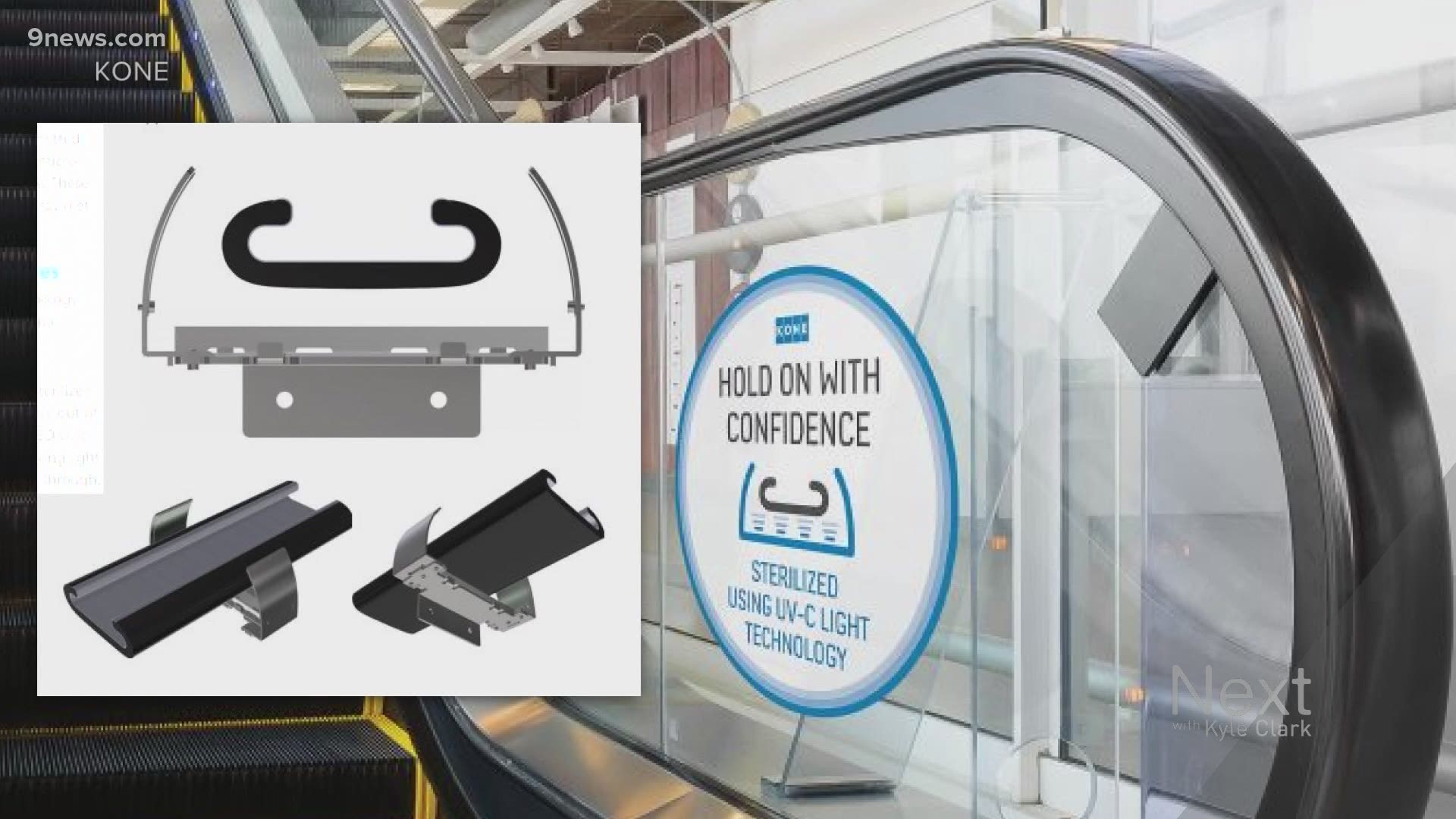DENVER — The Denver Broncos don't yet know if the NFL will allow fans for the upcoming season, but the next time fans go inside, they will see upgraded sanitation features.
The Stadium Management Company, which runs the stadium on behalf of the seven metro area counties that make up the Metropolitan Football Stadium District, revealed new features to try to combat COVID-19.
Those features include:
• Touchless bathrooms throughout the stadium
• 500 hand sanitizing stations
• UV-C escalator handrail sanitizers
• Bipolar ionization in the HVAC system
What is a UV-C escalator handrail sanitizer?
"A UV-C light underneath the escalators, which will help to reduce or eliminate bacteria or viruses that would be on the handrail," said Stadium Management Company General Manager Jay Roberts.
The UV-C devices will be installed through a partnership with KONE. It will cost $270,000 to install the technology on 15 escalators.
Last month, 9NEWS Mountain Newsroom Reporter Matt Renoux showed how a Breckenridge condominium complex is using UV-C light to disinfect rooms.
OK, but does this type of thing really work?
"I've been studying UV disinfection for about 20 years," said Dr. Karl Linden, professor of Environmental Engineering at the University of Colorado in Boulder. "I think it's very realistic that these UV LED lamps that are germicidal, can be effective for inactivating microorganisms, such as viruses on handrails."
He said it requires proper testing of the device to know how strong the light needs to be over a specific period of time.
"The dose is a function of the intensity of the light, how bright it is, times the time that the light is actually exposing the surface of the handrail," Linden said. "If you have one second of exposure, you need enough intensity of light over that one second to provide a dose that's going to kill off the viruses."
The sun emits UV-C light, but they don't reach the earth's surface.
"The sunlight that we see is filtered through the ozone layer and the atmosphere, and we get wavelengths that are not so harmful for humans and living beings," Linden said.
Linden said it requires 250 to 280 nanometers to properly disinfect.
So, if he saw someone cough into their hand, place it on an escalator handrail, and watch the handrail go through the UV-C device, would he place his hand on the exact same spot?
"If I knew the system was tested and was delivering the right dose of UV light, I would certainly not be afraid to put my hand in that same spot," Linden said. "It's disinfected just as well as it would be if you wiped that surface with an alcohol wipe or a sanitizing wipe."
The other expensive addition at the stadium will be something you can't see. At a cost of $800,000, the stadium is adding bipolar ionization to the heating, cooling and ventilation system.
"We talked with engineers and specialists about bipolar ionization in our HVAC system. It's been really effective at helping reduce, not only things like transmission of disease, but also of reducing allergens," Roberts said.
This won't solve face-to-face contact with someone who might be infected with COVID-19.
"We're not talking about person-to-person transfer," said Mark Hernandez, also a CU professor of Environmental Engineering. "We're talking about people in one room exhaling, those infectious particles going through the ventilation system into another room or locale, where other people are."
Bipolar ionization helps keep the "bad" particles from getting out, or makes them go away quickly.
"It puts a small charge on any airborne particle, and when a particle's charged, it settles more quickly or it sticks to surfaces," Hernandez said. "The idea is to treat the air when it's in the duct, to either remove those particles, or render, if it's a virus, those particles from infecting somebody else."
If these features are so good, why aren't they in other high traffic areas?
Next with Kyle Clark contacted Denver International Airport and Park Meadows Mall.
A spokeswoman for DIA said that the airport hasn't seen the cost-benefit. The airport continues to clean by hand.
The general manager for Park Meadows said that the mall looked into the UV-C system, but opted for cleaning and disinfecting on a regular schedule, as well as nightly deep sanitation.
SUGGESTED VIDEOS | Next with Kyle Clark

